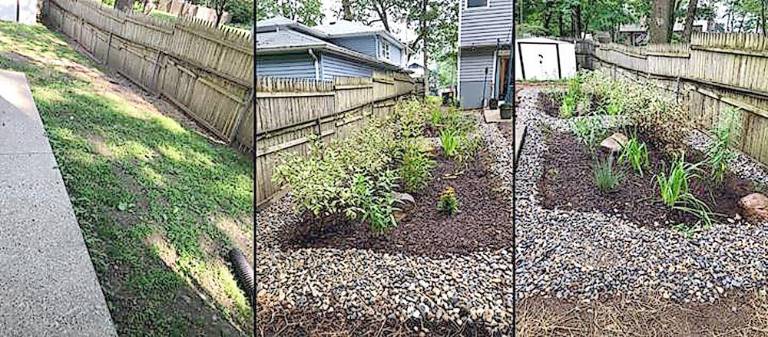Why plant a rain garden? A free webinar explains.
Lake Hopatcong. Webinar participants may also schedule a free consultation to work one-on-one with a landscape architect to plan a customized rain garden for their property.

A free educational webinar on the basics of rain garden installation will be presented at noon and at 7 p.m. on Wednesday, March 3, at noon and 7 p.m.
A rain garden is a collection of native shrubs, perennials, and flowers planted in a small depression, designed to temporarily hold and soak in rainwater runoff from impermeable surfaces such as roofs, driveways, and patios. These gardens help control pollution and mitigate flooding.
“This is a wonderful opportunity for residents within the Lake Hopatcong watershed to not only learn about the benefits of rain gardens, but also to get assistance in the planning and expense of adding a rain garden to their yards,” said Colleen Lyons, administrator of Lake Hopatcong Foundation, which is hosting the webinar in partnership with the Lake Hopatcong Commission and the Rutgers Cooperative Extension Water Resources Program.
Webinar participants may also schedule a free 30-minute virtual consultation to work one-on-one with a Rutgers landscape architect to plan a customized rain garden for their property.
Sixteen participants from Jefferson, Hopatcong, Mount Arlington, and Roxbury who live in the watershed will be eligible to receive a rebate of up to $450, after the installation of a rain garden and inspection by the Rutgers team.
“Rain gardens are a great step for homeowners who want to be able to do something positive for Lake Hopatcong’s water quality,” said Donna Macalle-Holly, grants and program director of the Lake Hopatcong Foundation. “The goal of this program is to install at least 16 gardens within the Lake Hopatcong watershed by the end of this year.”
’An answer to our problems’
Pete and Sara Buonomo of Landing took part in the program last spring, installing a rain garden in a flood-prone area of their property and receiving the rebate upon completion.
“When we first moved into our home and the warm weather came around, it was very clear we had a drainage issue,” said Sara Buonomo. “Neither my husband nor I knew what a rain garden even was, but after attending the hour-long seminar, it was clear we had the answer to our problems.
“We scheduled the follow up, proceeded with the plans created, and a few weeks later, voila, a scary, uneven, flood-prone backyard was turned into a beautiful rain garden oasis. All in all, it was a wonderful experience, which was beneficial to us, our neighbors and, most importantly, the environment.”
Funding for the project was provided through a Harmful Algal Bloom Grant from the New Jersey Department of Environmental Protection awarded to the Lake Hopatcong Foundation in partnership with the Lake Hopatcong Foundation, along with other project partners, to evaluate innovative technologies to control, prevent, or mitigate harmful algal blooms on Lake Hopatcong.
For more information or to register for the webinar, visit lakehopatcongcommission.org.
“The goal of this program is to install at least 16 gardens within the Lake Hopatcong watershed by the end of this year.” Donna Macalle-Holly